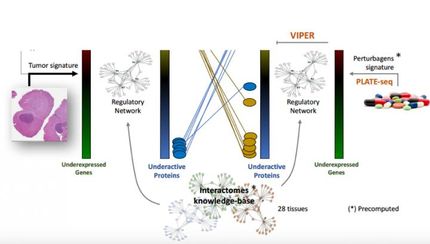Metabasis Therapeutics and Merck Announce Collaboration to Develop New Treatment for Diabetes, Hyperlipidemia and Obesity
Metabasis Therapeutics, Inc. and Merck & Co., Inc. announced that they have formed a collaboration to research, develop and commercialize novel small molecule therapeutics with potential to treat several diseases, including type 2 diabetes, hyperlipidemia and obesity, by activation of an enzyme in the liver called AMP-activated Protein Kinase (AMPK).
Under the terms of the agreement, both Metabasis and Merck will conduct discovery efforts and contribute drug candidates to the collaboration. Merck will make a payment of $5 million on signature of the agreement and will provide Metabasis with funding for its research contribution to the program. Merck assumes primary responsibility, including financial responsibility, for clinical development of any resulting product candidates and will have the right to market such products worldwide. Metabasis will be eligible to receive payments upon achievement of certain milestones during development of a product candidate. Should a product be commercialized, Metabasis will receive a royalty on net sales and have the option to co-promote the product in the United States. In the event that a product is developed and marketed for use in patients for a single indication, the total cash payments to Metabasis, excluding royalties, would be approximately $54 million. If a product is approved for additional indications, Merck would make additional milestone payments, which could bring the total cash payments to Metabasis to $74 million.
Metabasis has used its proprietary NuMimetic(TM) technology to discover potent and highly selective compounds that activate a protein kinase in the liver known to regulate cholesterol and fat levels. These small molecule compounds, known as AMP mimetics, mimic the natural regulator of this enzyme, which is known as adenosine mono-phosphate (AMP). Metabasis' NuMimetic technology was developed to help identify this class of compounds. The company has discovered lead compounds in the program that appear to inhibit cholesterol and fat synthesis in preclinical models. The data support the premise that these or related compounds may be useful for the treatment of patients with type 2 diabetes, hyperlipidemia, or non-alcoholic steatohepatitis. These compounds are designed to target type 2 diabetes by a different mechanism than Metabasis' gluconeogenesis inhibitors, CS-917 and MB07803.
Other news from the department business & finance

Get the life science industry in your inbox
By submitting this form you agree that LUMITOS AG will send you the newsletter(s) selected above by email. Your data will not be passed on to third parties. Your data will be stored and processed in accordance with our data protection regulations. LUMITOS may contact you by email for the purpose of advertising or market and opinion surveys. You can revoke your consent at any time without giving reasons to LUMITOS AG, Ernst-Augustin-Str. 2, 12489 Berlin, Germany or by e-mail at revoke@lumitos.com with effect for the future. In addition, each email contains a link to unsubscribe from the corresponding newsletter.
























































